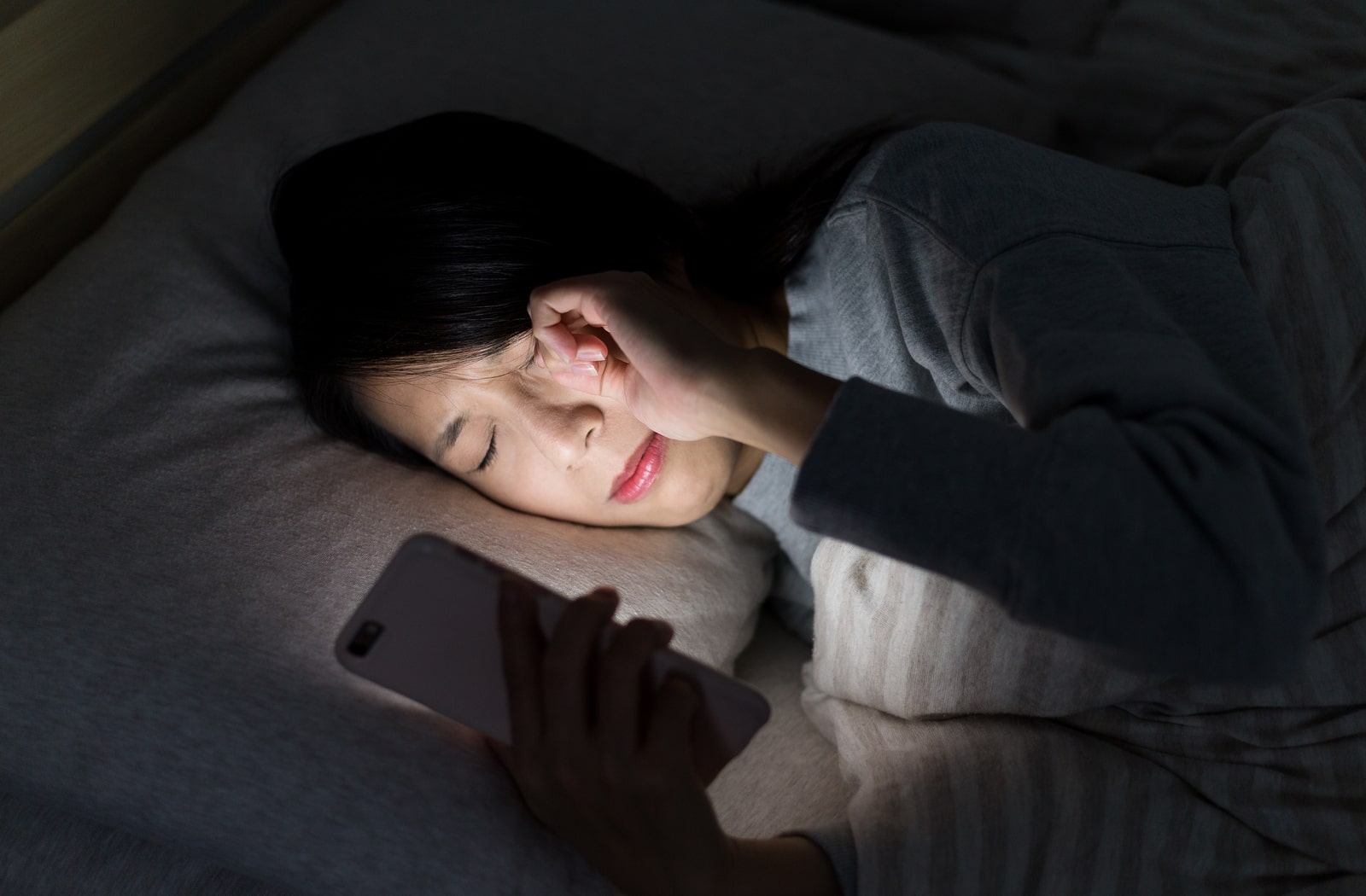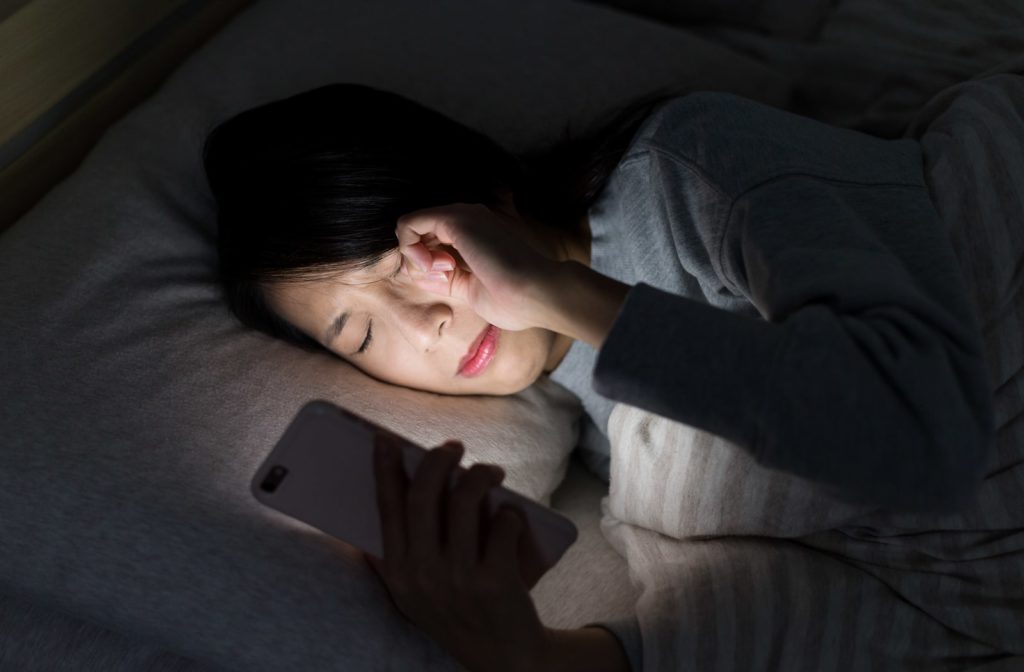Imagine waking up after a good night’s sleep and immediately reaching up to your eyes because they’re itchy or burning. When you turn on the lights to start your day, you have to shield your eyes because they’re too sensitive. If this sounds like you, you might be experiencing dry eye during sleep.
It’s essential to understand what can cause dry eye during sleep and how your eye doctor can help manage your symptoms and even overcome your condition.
Dry Eye Disease Explained
Dry eye disease is a common eye condition that affects the amount and quality of your tears. When you blink, your eyelids spread a layer of tears along your eye surface to keep it lubricated and free from dust and dirt. Three layers make up your tear structure, all of which work together to protect and hydrate your eyes.
The inner mucus layer helps tears stick to your eye surface. The oily outer layer prevents your tears from evaporating too quickly. The watery middle layer keeps your eyes wet and contains essential nutrients.
Dry eye can be highly uncomfortable. People with dry eye can suffer from symptoms such as:
- Burning sensation
- Eye redness
- Light sensitivity
- Watery eyes
- Eye fatigue
- Blurred vision
Many environmental and medical conditions can cause dry eye. If you live in a dry area or sleep with the air conditioner turned on, you might be more likely to experience dry eye because the air around you doesn’t contain as much moisture. Medical conditions such as thyroid disease, vitamin A deficiency, and Sjogren’s syndrome can also cause dry eye. Older age also increases a person’s likelihood of developing dry eye.
Waking Up With Dry Eyes
When your tears evaporate too quickly, you might wake up with dry eyes. But what makes them evaporate? We know the oily outer layer prevents your tears from evaporating. When that oily outer layer is interfered with during sleep, it can lead to dry eye.
Usually, when you sleep, your eyes are completely shut. A layer of tear film completely covers your eye surface for the entire time you’re asleep. However, some conditions and lifestyle habits can still reduce the amount of moisture your eyes get during sleep.
Nocturnal Lagophthalmos
Nocturnal lagophthalmos is a condition where a person can’t close their eyes during sleep. The condition is caused by a weakened or damaged facial nerve which sends signals to your facial muscles, such as your eyelids, telling them what to do.
When a person’s eyes are open during sleep, passing air dries them out and makes tears evaporate more quickly than usual. Without the overnight moisture protection from tears, a person with nocturnal lagophthalmos may wake up with gritty, itchy eyes.
A person with nocturnal lagophthalmos may only be able to partially close their eyes or not be able to complete them at all during sleep due to a malfunctioning facial nerve. Nocturnal lagophthalmos is often challenging to diagnose, especially if someone sleeps by themselves.
Screen Time Before Bed
Often we’ll spend time scrolling through social media or texting before bed. Sitting in the dark with a bright LED light shining back at you forces your eyes to focus for a long time at a fixed distance. This overfocus can reduce your blink rate and lead to dry eye during sleep.
When you blink less often, you don’t moisturize your eyes properly. Using a screen too much before bed and spending all that time not blinking can dry your eyes out and lead to poorer tear quality overall. Significantly, if you blink less often, you also increase the rate at which your tears evaporate.
Incorrect Contact Lens Use
You risk dry eye when you don’t follow proper contact lens use and care. If you keep your contact lenses in for too long, they can become dirty, aggravating dry eye symptoms. Many contact lens brands are meant to be used one time and thrown away or placed in contact solution overnight for use the next day.
For example, if you sleep with your contact lenses, they block your eyelid from delivering moisture to your eye surface. Without that essential moisture, your eyes are vulnerable to drying out and becoming irritated.
Overcoming Dry Eye
Most of the time, the first step in overcoming dry eye is to visit your eye doctor for a comprehensive eye exam. Your doctor can properly diagnose your condition and try to determine its cause. Whether it’s nocturnal lagophthalmos or too much time on your phone, treatment becomes far more straightforward once you determine the cause.
You can also visit the Dry Eye Clinic at Henderson Vision Centre. Our dry eye therapy program includes:
- Oculus Keratograph 5 imaging to gauge the cause and severity of your dry eyes
- Hylo non-preserved artificial tears to increase eye lubrication
- Heating goggles to stimulate eyelid health
- Tea-tree oil cleanser
We at Henderson Vision Centre want to help you reduce or eliminate dry eye symptoms. Book an appointment today to see what we can do for you!



